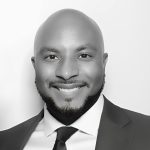Donald Trump Criticized His Future Campaign Tactics In 1999

Donald Trump, left, is seen outside the Federal Courthouse in Newark, N.J., with Roger Stone, the director of Trump’s presidential exploratory committee Monday, Oct. 25, 1999, for the swearing-in of Trump’s sister as a federal appeals court judge. (AP Photo/Daniel Hulshizer)
”I really believe the Republicans are just too crazy right…He doesn’t like the blacks, he doesn’t like the gays. It’s just incredible that anybody could embrace this guy, and maybe he’ll get 4 or 5 percent of the vote and it’ll be a really staunch right wacko vote.”
Is that a quote from a liberal voter, remarking on Donald Trump’s 2016 presidential campaign? No. It’s from Donald Trump, on October 25, 1999 on NBC‘s “Meet The Press,” criticizing Pat Buchanan and renouncing his registration with the Republican Party.
Buchanan, a former CNN anchor, made multiple presidential bids in the 90s, pushing nationalism amid technological and demographic shifts in the United States. Buchanan called for a wall along the Mexican border, called for the decrease of legal immigration claiming immigration was threatening America’s “identity,” opposed “globalist” trade policies, and criticized the “establishment.” His slogan was “Make America First Again.”
In 1992, he primaried President George H.W. Bush, winning 3 million votes but not the nomination. In 1996, Buchanan ran in the GOP primary and yet again didn’t secure the nomination but still had support. During the 2000 election, Buchanan ran in the Reform Party, which is the party Donald Trump announced he would be joining in the above “Meet The Press” interview while he was exploring a run for President (advised by Roger Stone).
Before Trump dropped out of the race, he joined Buchanan’s critics in condemning him as a bigot who was playing to the fringe of the far right. Trump expanded on this in a separate interview with Larry King in 1999 where he even further blasted Buchanan’s tactics as appealing to the “wacko vote,” in remarks that could easily be considered valid criticism of his 2016 campaign in its early days:
I think it is personality. I think he’s a very — you know, it’s almost gotten to a point where I’m not even so sure he’s far right, I think he’s beyond far right, and, then, on other issues he’s just all over the place. I don’t think he’ll get any votes.
In an op-ed for the Los Angeles Times written on October 31, 1999, Trump made more criticisms of Buchanan that echo what we’ve heard leveled at President Trump today:
Looking to make a difference? Consider signing one of these sponsored petitions:“On slow days, he attacks gays, immigrants, welfare recipients, even Zulus. When cornered, he says he’s misunderstood.
…
The fact is, he has a deadly serious purpose. Buchanan is rewriting history and spreading fear for one purpose: To gain political power. That makes him a very dangerous man.”
Donald Trump would go on to run a campaign that was very similar to the one he panned as bigoted, fear-mongering, and appealing to the “staunch right wacko vote.” By the time Trump launched his campaign in 2015, he had already become a star of the anti-establishment Tea Party movement with his conspiracy theory about President Barack Obama’s place of birth. After decades of consuming right-wing content from Fox News, the Republican Party’s base was ready for the style of politics Buchanan had championed. And so, Donald Trump jumped in the race, running a nationalist campaign that called for the building of a wall on the Mexican border, played to the Republican base’s sense of “identity,” criticizing America’s trade deals with other nations, and lambasting the “establishment.” Trump slogans were “Make America Great Again” (used by President Ronald Reagan) and “America First” (used by the KKK).
Just like Buchanan, many saw Trump’s campaign as bigoted and appealing to the far right fringe. This time, however, it wasn’t a fringe. It was now the base of the Republican Party. Donald Trump became President Trump using the very same campaign tactics he condemned 17 years earlier; his timing was just better.
MSNBC‘s Steve Kornacki pointed to these parallels in a segment, and also cited a Politico piece that reported Donald Trump reached out to apologize to Pat Buchanan before his presidential bid.
Also in that Politico piece, was this quote from Buchanan:
“The ideas made it,” Buchanan tells me, letting out a belly laugh. “But I didn’t.”
Although Mr. Buchanan never became President, his legacy is currently sitting in the Oval Office.

Join Our Exclusive Community One-Month Free
 24/7 Access To The Rantt Community
24/7 Access To The Rantt Community Daily morning and evening news briefings
Daily morning and evening news briefings High-minded analysis from industry experts
High-minded analysis from industry experts
 Participate in thoughtful discussions
Participate in thoughtful discussions Amplify your voice on social media
Amplify your voice on social media No trolls. No bots. No ads.
No trolls. No bots. No ads.






